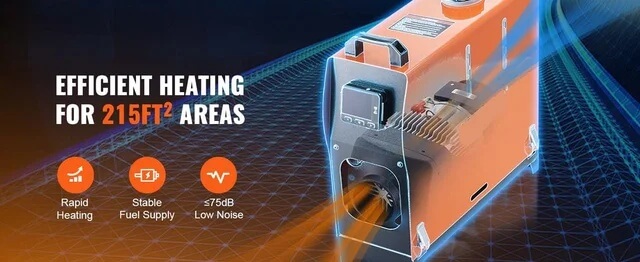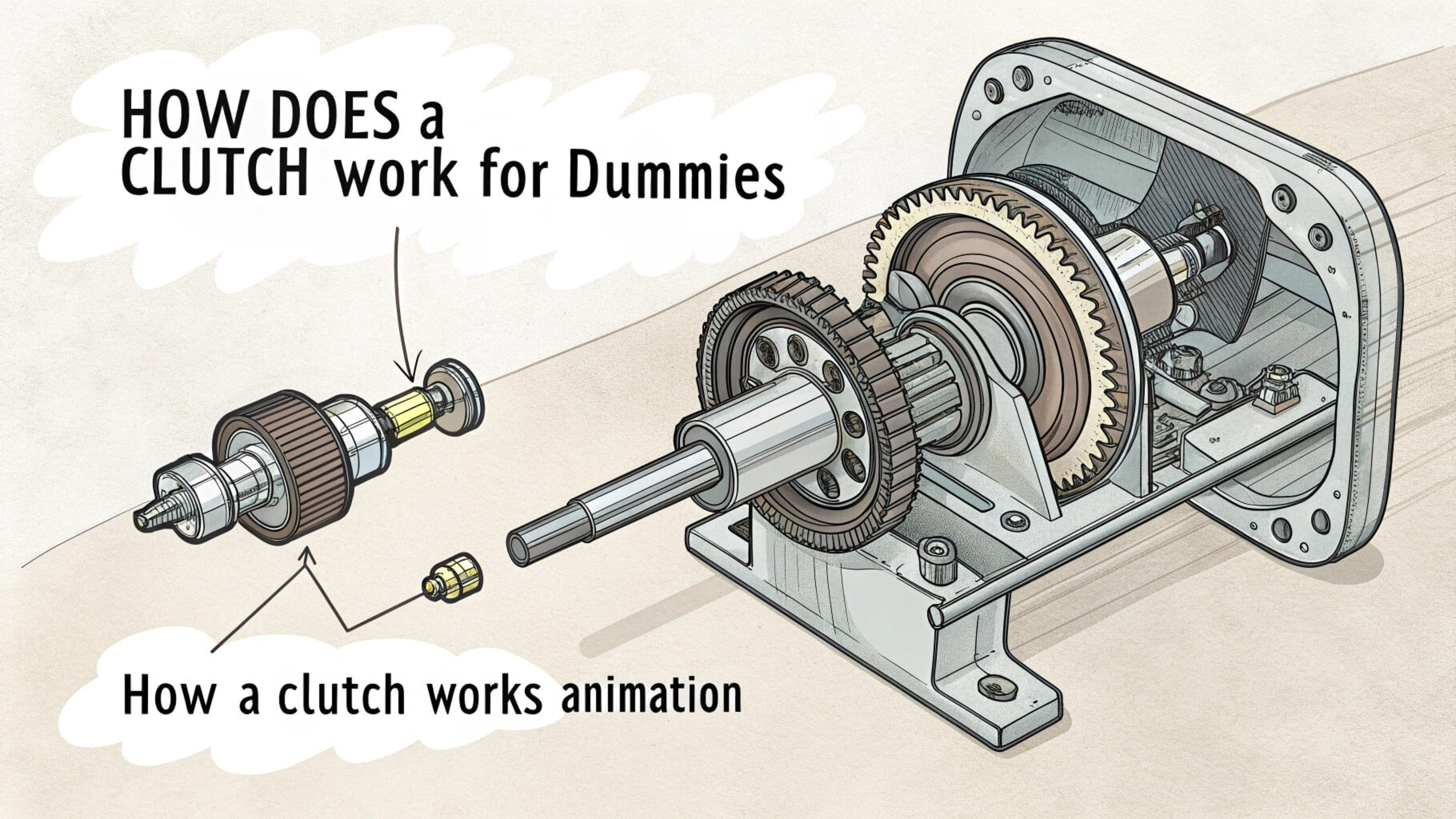Cold mornings are tough, especially without a warm car. Let’s solve this problem together.
Diesel parking heaters warm vehicles by efficiently using diesel fuel and electricity. They are ideal for cold climates and improve comfort.
Stay with me to explore their mechanics, benefits, and efficient use.
How do diesel car heaters work?
Diesel car heaters[^1] are game-changers for cold climates. They keep you warm during the harshest winters.
Diesel car heaters[^2] function by burning diesel fuel to generate heat. This heat warms the car's interior without starting the engine.
To understand this, let’s dive deeper.
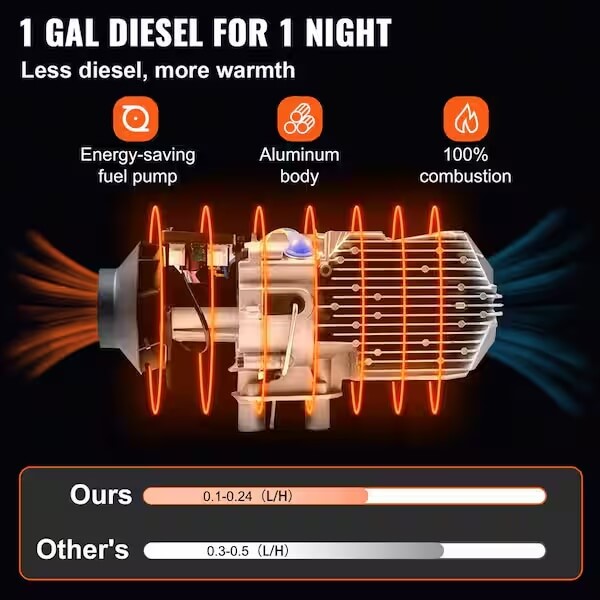
The Role of Diesel Heaters in Modern Cars
Modern diesel heaters[^3] use advanced components to operate efficiently. Key parts include:
| Component[^4] | Function |
|---|---|
| Combustion chamber | Burns diesel to produce heat |
| Heat exchanger | Transfers heat to the air inside the car |
| Fan | Distributes warm air evenly |
By avoiding engine idling, these heaters save fuel and reduce emissions, making them environmentally friendly.
How does a parking heater work?
Freezing in your car while it warms up is frustrating. Diesel parking heaters[^5] eliminate this hassle.
Parking heaters[^6] work by burning small amounts of diesel fuel to heat the car. They function independently of the engine.
Let’s explore the process in detail.
Step-by-Step Operation of Parking Heaters
- Fuel intake[^7]: Diesel is drawn from the vehicle’s tank.
- Combustion[^8]: The heater ignites the diesel, producing hot gases.
- Heat transfer[^9]: A heat exchanger warms the air without mixing exhaust gases.
- Air distribution[^10]: A fan circulates warm air inside the car.
Diesel parking heaters[^5] are reliable, even in extreme cold. They improve both comfort and efficiency.
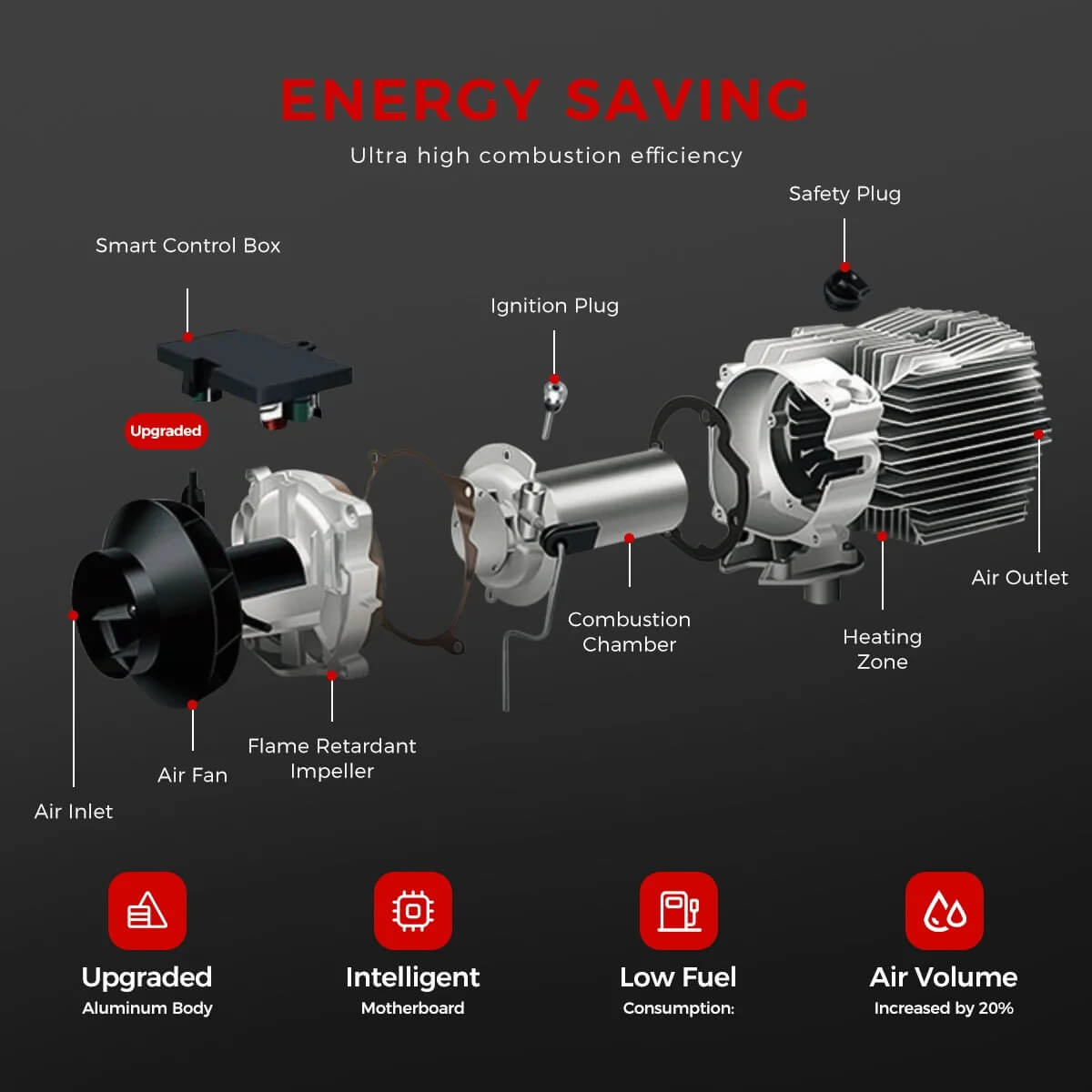
What is the principle of diesel heater?
Diesel heaters[^11] are designed for simplicity and efficiency. But how exactly do they work?
The principle of diesel heaters[^12] is based on burning fuel in a controlled manner to produce heat. This heat is then distributed safely.
Now let’s analyze their core functioning principles.
Core Principles of Diesel Heaters
Diesel heaters rely on these basic mechanisms:
- Combustion efficiency[^13]: Fuel is burned with minimal waste.
- Heat transfer[^14]: Hot air is transferred without contact with exhaust gases.
- Safety measures[^15]: Built-in controls prevent overheating or fuel leaks.
By understanding these principles, users can maintain their heaters effectively, extending their lifespan.
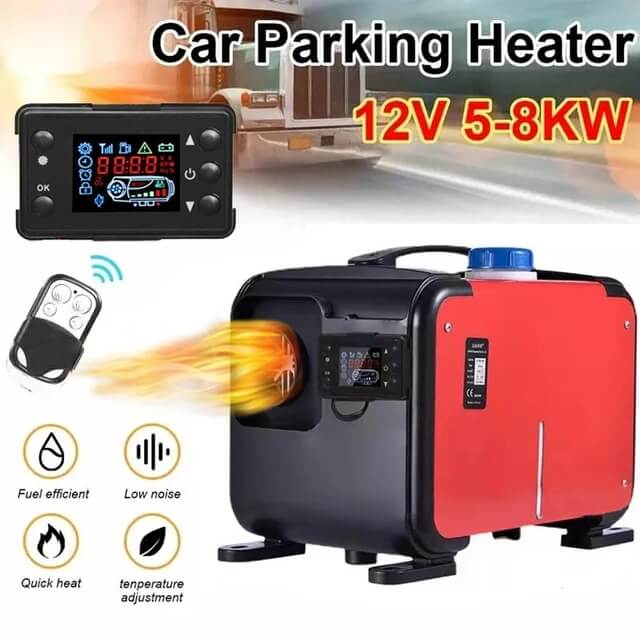
How much power does a diesel parking heater use?
Power consumption[^16] is a key consideration for efficient use. So how much power do these heaters use?
Diesel parking heaters[^17] use minimal power, typically consuming 0.1 to 0.2 liters of diesel per hour and less than 50W of electricity.
Here’s a detailed breakdown.
Balancing Fuel and Electricity Usage
| Usage Type[^18] | Consumption Rate |
|---|---|
| Diesel fuel | 0.1–0.2 liters per hour |
| Electricity | 10–50 watts, depending on model and use |
This efficient operation ensures cost-effective heating, especially for vehicles used in remote areas.
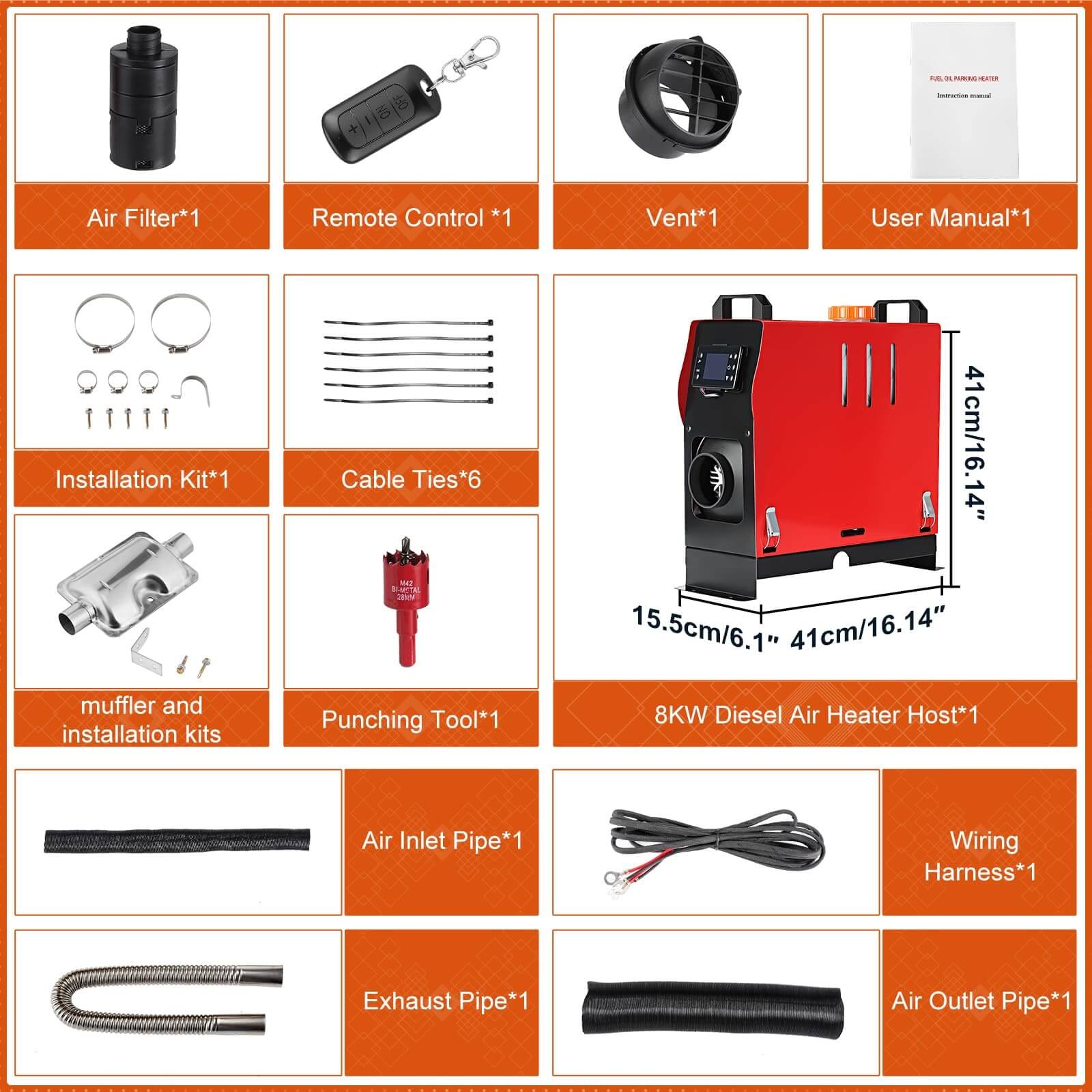
Conclusion
To summarize:
- Diesel heaters burn fuel efficiently to generate heat.
- They work independently of the engine, ensuring comfort and fuel savings.
- Advanced designs improve performance while being eco-friendly.
- Low power consumption makes them cost-effective.
- Understanding their principles aids maintenance and longevity.
Stay warm and efficient during winter with these heaters!

